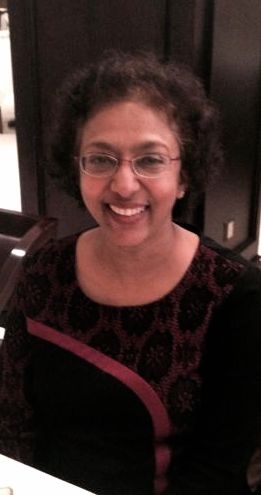Work and Life in Malaysia for a Female IT Project Director
 With more than 25 years in the IT and telecom industries, Patricea D Cruz started as a programmer. Today she lives in Malaysia and is currently a Project Director for projects ranging from $1 million to $50 million (USD).
With more than 25 years in the IT and telecom industries, Patricea D Cruz started as a programmer. Today she lives in Malaysia and is currently a Project Director for projects ranging from $1 million to $50 million (USD).
What obstacles HAVE you faced and overcome in your professional journey?
PC: One of the biggest obstacles has been that I am female and of Indian origin. In Malaysia, due to cultural breakdown, there are no equal opportunities. Indians are certainly not in the top strata of the society. Thankfully, my father was open-minded and gave all five his daughters a good education and encouraged us to think for ourselves. He gave us opportunities to debate and share our views.
Early in my career I had a female boss who was not helpful at all. That made me terrified of women bosses. Subsequently, and intentionally, I have only worked for male bosses.
What or who has helped you the most advance in your career?
PC: From the business side, I had some good male bosses who gave me good opportunities to shine. They opened doors for me because I had good communication skills, i.e. good command of the English language, is so widely used and essential in the business environment. They fueled my confidence and I could stand on my own.
I’ve had to work harder than my peers. Where, I lacked in technical ability, I studied to better understand it. I developed myself and got my Masters while working and taking care of a seven-year-old child.
 What do you think the primary challenges are for working women in Malaysia today?
What do you think the primary challenges are for working women in Malaysia today?
PC: Many woman in Malaysia give up work to stay with the family. Some take jobs lower than those they are capable of doing to minimize the impact to their families. Businesses need to enable women to achieve their potential, and make the environment easier for them, e.g. provide childcare, and easy to access to medical services.
Working women in Malaysia have come a long way, but many opportunities are still given or reserved for men i.e. directorship of organizations, better projects, new opportunities.
For their part, women should learn to balance their life and make work part of their lives – not as separate entities. Deal with what you can, let go what you cannot! (Tongue-in-cheek observation: unfolded clothes are not as important as a hot meal!)